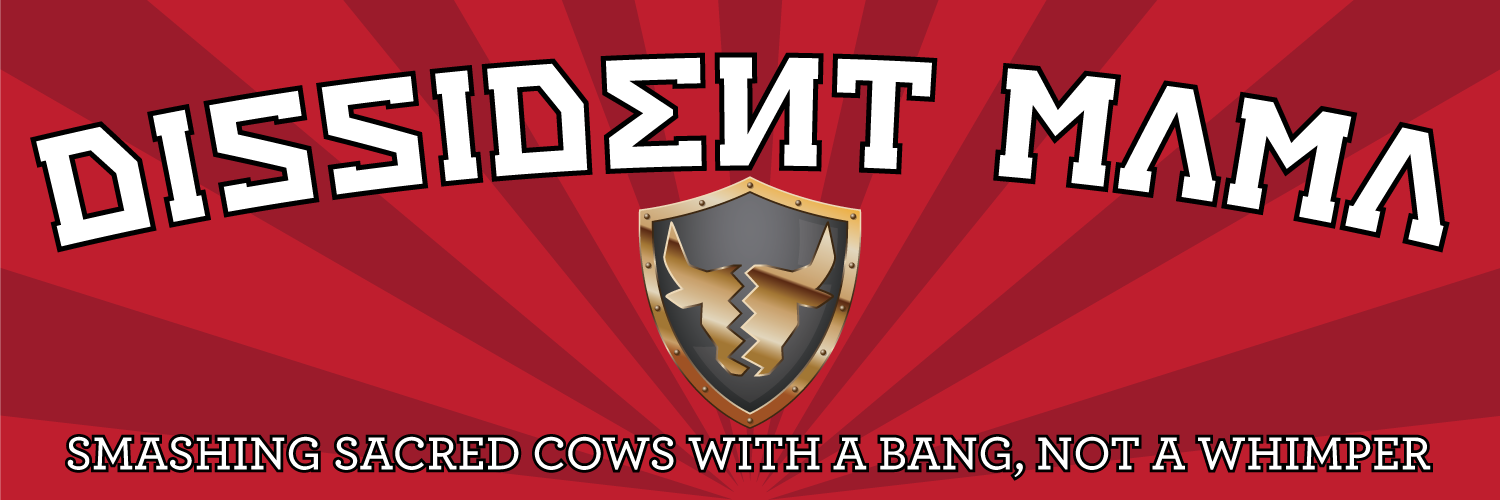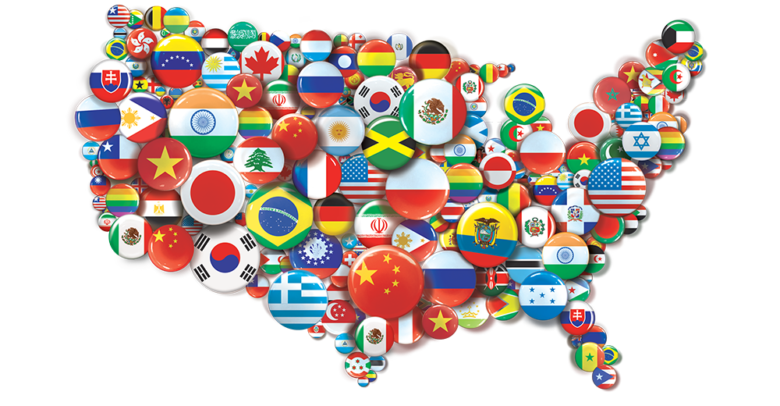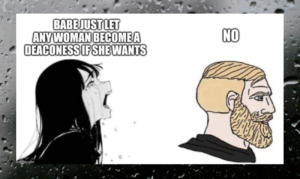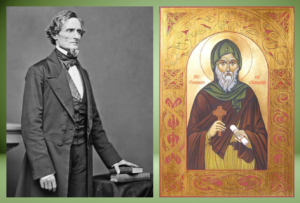In parts 1 and 2 of this series, I discussed the flawed thinking among Christians when it comes to refugees. But this social-gospel problem actually goes beyond people of faith.
It stems from what Christian philosopher Jay W. Richards calls the piety myth: “focusing on our good intentions rather than the unintended consequences of our actions.” And it affects most people in our high-time-preference society. No matter how noble the charity or political stand, it’s just “morally self-indulgent,” if exercised without prudence.
Similarly, economist Thomas Sowell calls it the vision of the anointed: self-promoted do-gooders who push a worldview oblivious to real-world considerations. So, why is it that God-given reason so often takes a back seat to emotion?
Ignorance of history is key to persuading people that sentimental arguments are somehow sound. Even when it comes to the current refugee crisis, much has to do with what kind of American ethic you believe in: Jeffersonian (federalism) or Hamiltonian (nationalism).
In what came to be known as the Principles of ’98, Thomas Jefferson penned the Kentucky Resolutions and James Madison the Virginia Resolutions. Both were unambiguous declarations that the U.S. Constitution should be understood as a document defending states’ rights, not one promoting a strong central authority.
Jefferson wrote “That alien friends are under the jurisdiction and protection of the laws of the State wherein they are: that no power over them has been delegated to the United States.”
So, if the people of an individual state want to subsidize humanitarian work supporting refugees or set up resettlements within their own borders, that should be within their purview constitutionally. That was indeed the case, until the 1876 Supreme Court ruled that the power to control and regulate immigration was a role of the federal government.
Funny that immigration is really a states-rights issue fundamentally, yet leftists who say that Christians leaning toward a more tempered approach to immigration “stoke the fires of nationalism – and it’s about as far from both the core of the Constitution and the heart of Jesus as you can get.”
Huh, turns out that the pietists are truly the nationalists and don’t know squat about the Constitution. Hmm, maybe they don’t know much about my heart for Jesus either.
But it’s not just believers who use the “nationalism” language. Libertarians often echo the rhetoric.
One refrain goes “We’re a nation of immigrants.” Yet as historian Brion McClanahan explains, “The vast majority of Americans were born here and come from families that go back for generations. The same was true of the founding generation.”
So, what is a nation? “Nation” is defined as “a large aggregate of people united by common descent, history, culture, or language, inhabiting a particular country or territory.”
America has never met that definition, not even when it was just 13 fledgling colonies, much less now, after decades of diversity indoctrination and multicultural policy. “America, both then and today, is a collection of republics wedded together for the ‘general welfare’ of the Union, not a ‘nation’ of people,” McClanahan says.
If you’re a Jeffersonian, you believe that these United States are comprised of a loose confederation of sovereign states, which are federated by a voluntary compact. If you believe in Hamiltonianism, you believe in the nation-state.
“We’re all migrants here, a collective, multicultural citizenry of an otherworldly kingdom,” David Platt writes at the Gospel Coalition. Yes, yes, as Christians, we believe that earth is our temporary residence and that our true home is in heaven. But does that mean we dispel logic in the here and now?
Even with a modicum of reason and a dash of reality one can easily decode this guy’s seemingly benign language: identity politics is godly and individual rights are not; social-justice is righteous and tradition is not.
Honestly, if there’s anything that’s not heavenly, it’d be a church-sanctioned progressive order of which there is no escape. I’d rather live in a society of liberty-loving atheists than dwell in evangeleftist lala-land with dudes like this. Sheesh.
No country or empire has ever survived wide open borders. Just ask Rome. So, if we’re going to take this power away from the states and put it in the hands of a central authority, then perhaps it’s by design that immigration is out of control.
Remember, prior to 1965, there was a “national origins quota system, which had favored immigrants from nations with a similar heritage to our own,” writes journalist Julia Hahn. But the Immigration and Nationality Act passed by Congress that year “opened up American immigration visas to the entire world.”
It was Teddy Kennedy’s brainchild. Bring in “your tired, your poor” from places not keen on federalism, give them stuff, and secure a lifelong loyal voting bloc. Seems to have worked out pretty well for the Hamiltonians.
Many who made up the WWII-era “were fourth- or fifth-generation Americans whose families had settled in the British North American colonies on their own hook,” McClanahan continues. “No government handouts awaited their arrival.”
Some libertarians think the Constitution enables tyranny (a la Lysander Spooner), hence, they don’t care if it’s interpreted as a federal republic ratified by the people of the States or a nation-state propagated by the courts.
Some believe in America’s “magic soil”: that when stepped upon for the first time, all immigrants somehow turn into private-property advocates, free-market capitalists, non-aggression-principle proponents, and religious pluralists. If only.
Others clamor for free immigration because they say borders are imaginary lines drawn by governments and are unjust because they inhibit the free movement of people. But with the reality of wholesale government entitlements to citizens and non-citizens alike, clear-thinking libertarians know that mass immigration is unsustainable.
Open borders + the welfare state = the socialist, culture-crushing dystopia under which we currently live. Perhaps refugees are just one of the many pawns in this game of bringing an end to this thing called America. But maybe that’s the point.
“Great, the beginning of our one-world progressive state!” say the leftists. “A totalitarian tapestry woven together of people who are forced to associate, erase their individualism, and pay homage to the state-endorsed hierarchy of protected classes.” Not my cup of tea.
“Great, an end to the empire!” say the libertarians. While I’m sympathetic to the critique, what they forget is that even a free society would have rules and standards, and private enforcement of those things.
In fact, a purely libertarian culture would be void of all public lands and would have unending boundaries, walls, and lines erected in order to protect private property. As Robert Frost penned, “Good fences make good neighbors.”
A libertarian culture may even create a society-wide delineation to maintain its ideological foundations and principles. But those lines wouldn’t be drawn arbitrarily by some central planning committee; rather, they would unfold organically, as reality would necessitate for the people of that particular region.
Libertarian economist Hans-Hermann Hoppe is not only for borders as a mechanism to protect private property, but also as a repellent to forced integration. Unfettered immigration, he says, is not a quality of the free market, but rather a tool of the state meant to externalize the cost to the taxpayer and perpetuate cultural destruction. “Mr. Libertarian” Murray Rothbard came to similar conclusions later in his life.
Mass immigration will end the hearth-and-home culture that once was and purposely create culturally alien communities on a large scale. This is a recipe for disaster for immigrant and citizen alike.
Dictatorial diversity will replace assimilation. Mistrust will replace trust. Anxiety will replace tolerance. Resentment will replace neighborliness. Conflict will replace community.
And anger will replace good will, especially if Americans are forced to finance the extinction of their own way of life, while simultaneously pegged as haters because they want to resist the ruination of their tradition and civilization. So much for piety.
But what culture are we talking about? We already know our “nation,” which spans two oceans, four time zones, and 3.797 million square miles, and includes 16 territories in the Caribbean and Pacific and nearly 800 military bases around the globe, doesn’t fit the bill. That’s an empire, y’all.
I’m talking about an American culture that reinvigorates localism and subsidiarity liberalism. A rebirth of Jeffersonianism that pushes the one-size-fits-all Hamiltonianism into the ash heap of history where it belongs.
That way, I get back my Southern culture of quiet faith, property, kith, and kin, and you anointed can have the multicultural-collectivist society of your dreams, and pay for the mob-rule melting pot on your dime. Enjoy reality, folks. It may just be your final fatal conceit.






Comments
I love the history lesson! Your delivery is exceptional, well rounded. I too believe bring back Jeffersonian democracy. I am so glad you have a supporting family, the vision, and energy to have brought this blog to life and keep it going.
In love and light, hail to a member of the brew crew,
Shannon
Author
Thanks so much for your kind words and encouragement, Shannon. Yes, thank God for my family support, but not too sure about my energy … too many late-nighters are tough on this aged body!
Superbly executed. Your defining of terms rocks! Your logic is so close to common sense (HA), which is a rarity these days AND something to which I can relate, sister. Let’s bury Hamiltonism for good! I’m learning so much from you:)
Author
Here’s to Jeffersonianism and life-long learning!